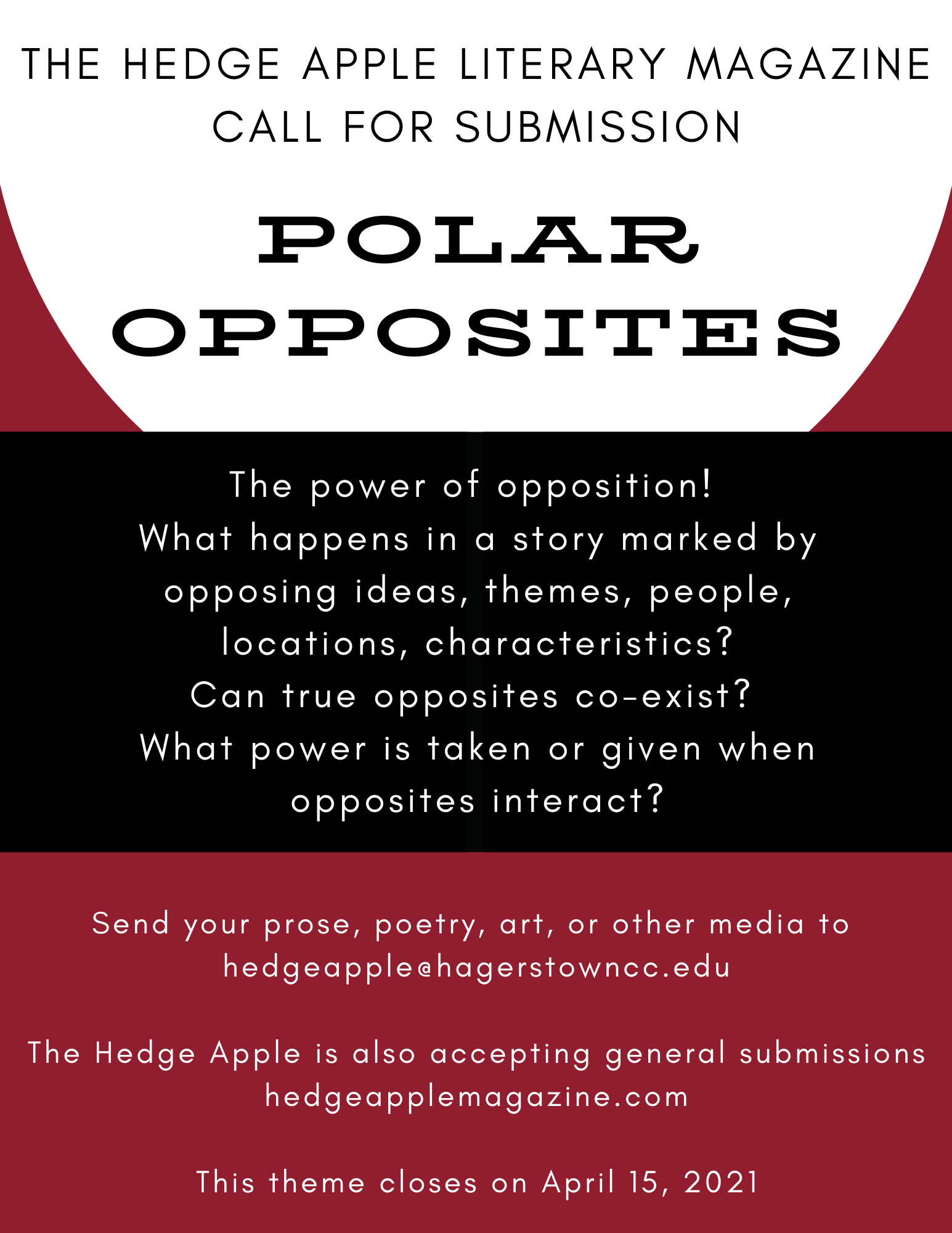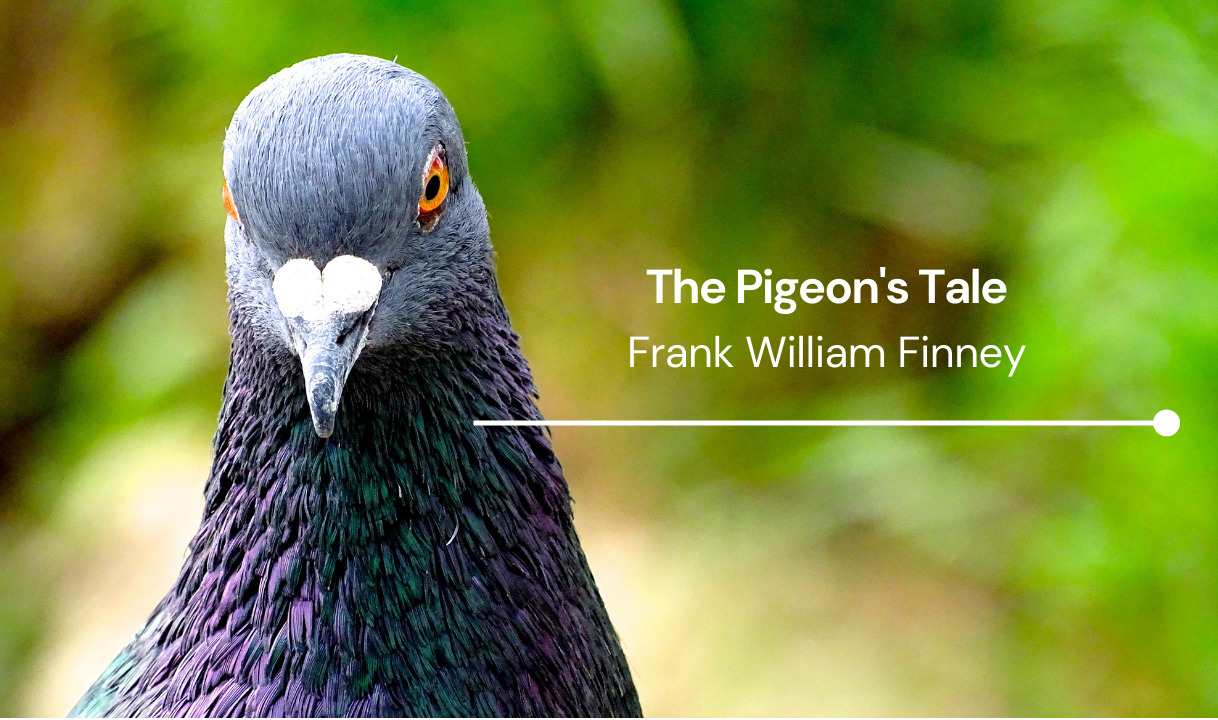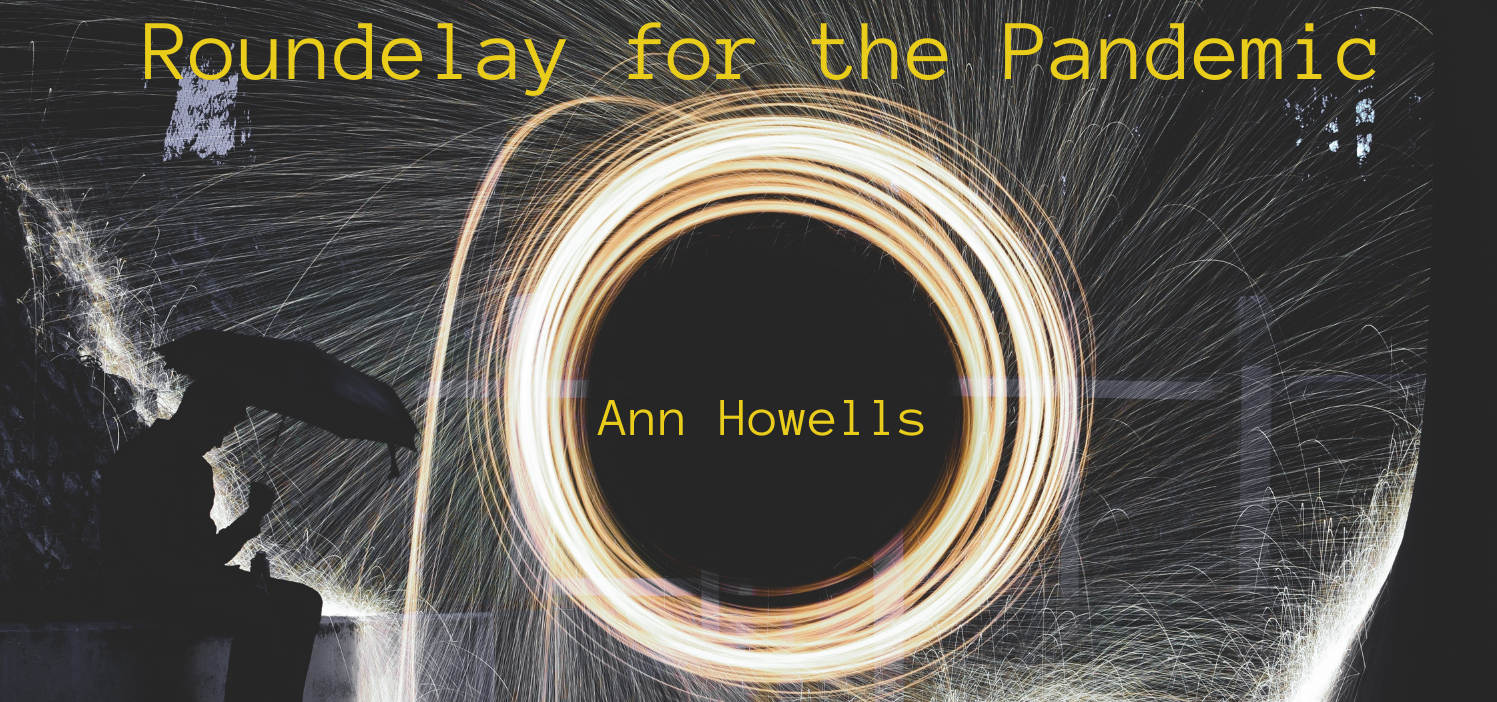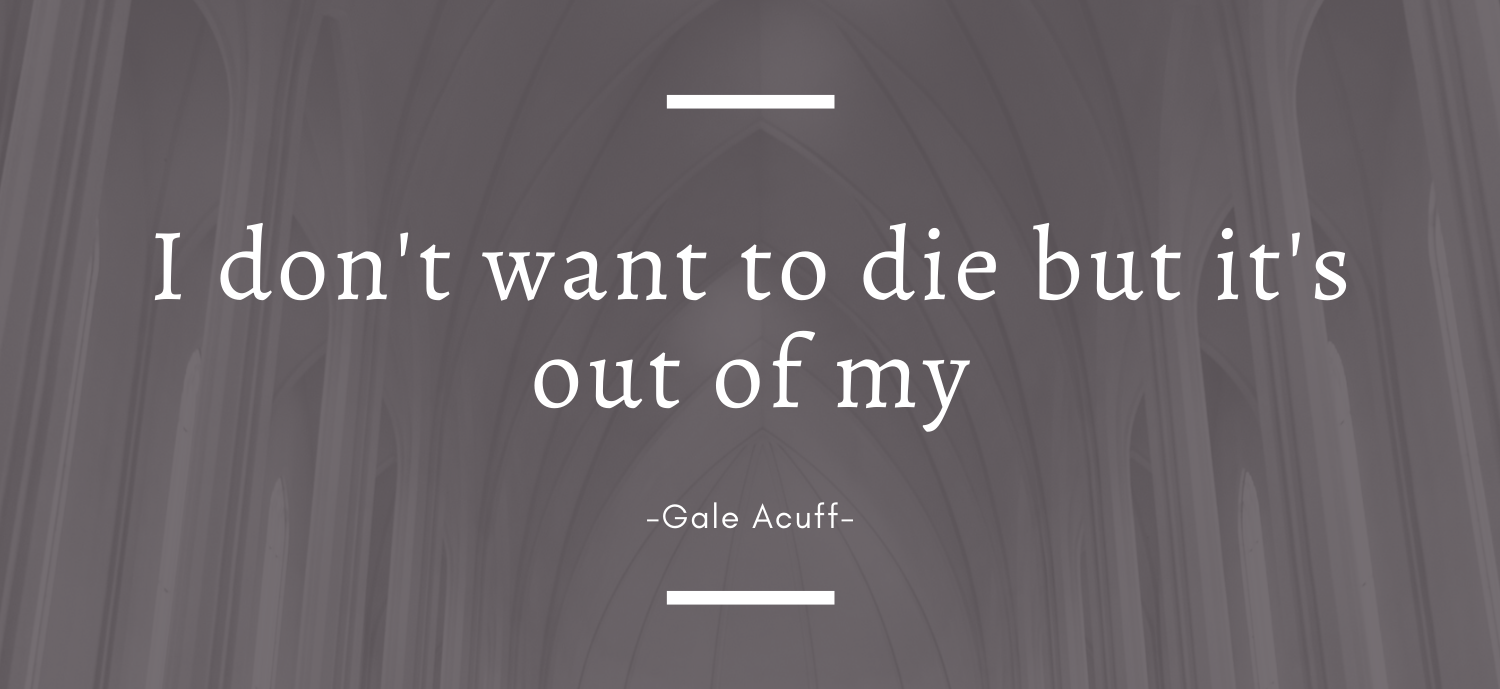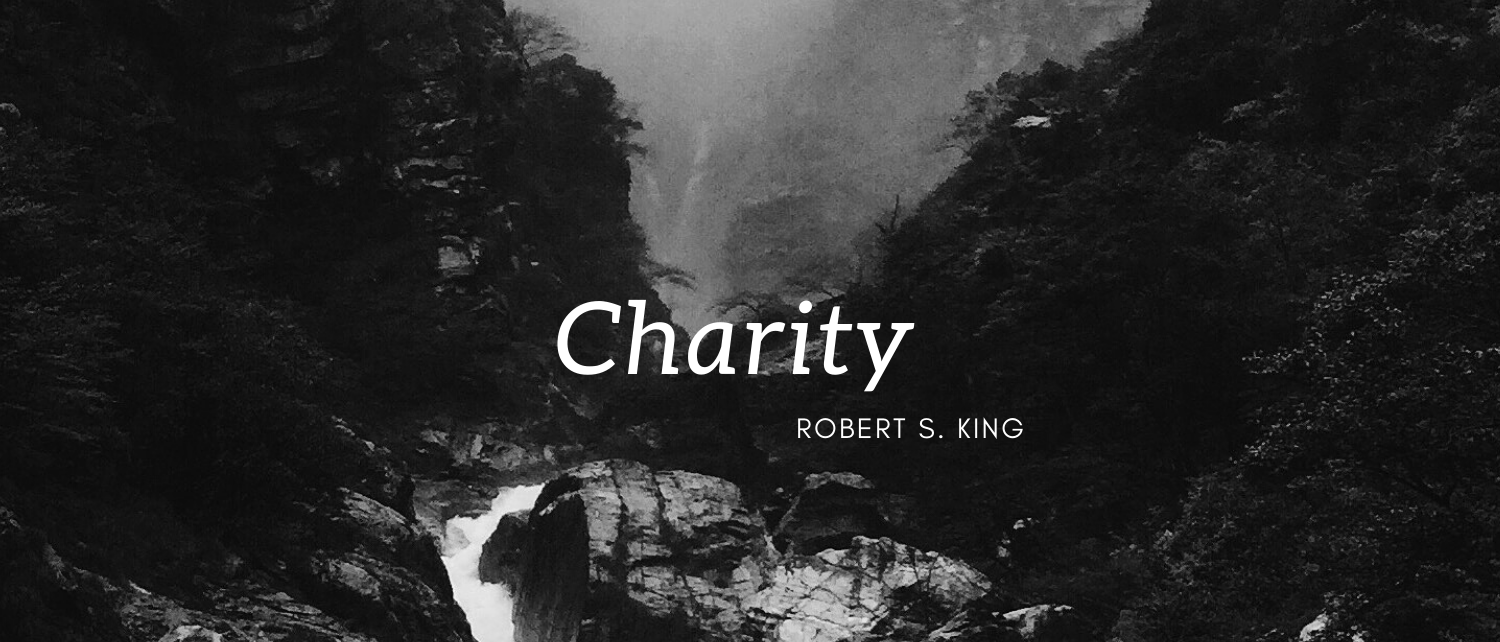Broken Up- James P. Hanley

Broken Up
By James P Hanley
I looked out the kitchen window and saw the movements of a couple directly across in the tall, brick apartment building constructed in a row of similar design. The often-malfunctioning elevator in my building had trapped another resident pressing frantically against the emergency button and sending a loud signal to the superintendent in the lower floor. I stacked the dinner dishes while the coil on the stove reddened and the kettle water bubbled. Pouring the hot water into unmatched cups over mounds of sugar and dark granules of instant coffee, I took each steaming cup by the handle.
When I placed the coffee on the low table in the living room of my furnished apartment, I saw Natalie slouching on the couch and staring at a cheap painting on the wall.
“What are you so lost in thought about?” I asked as I set a cup in front of her.
“We live in the same apartment complex but our lives are so different. Yours is settled, mine…” she said, pausing as if uncertain where to take the sentence.
“But here we are, so we can’t be so different,” I said cheerfully.
Her eyes closed in annoyance. “You never take me seriously.”
She was partially right. I’d learned to accept her dramatics without reaction or dismissal, but internally there was always a nerve that twitched, fearful I was misreading her words.
“It must be wonderful to have a plan.” The sarcasm underlined each of her words.
“What’s really wrong?” I asked, but had waited too long to show interest and she wasn’t going to answer.
“I didn’t realize how late it is,” Natalie said without looking at her watch.
“Do you turn into a pumpkin?” I teased.
“No, an eggplant; don’t I look like one?” She stood and pointed at her small-breasted upper body and the thicker legs and buttocks.
She got up, blew me a kiss and walked to the door. “I’m going for a walk before bed.” The statement was devoid of an invitation to accompany.
It seemed that whenever Natalie left the room she took the air with her, and I sat silently in the vacuum.
***
Natalie’s apartment was a floor below mine. We’d introduced ourselves when we nearly collided on the stairs, she running down the steps and I slowly ascending, balancing two packages. Our immediate connection was a distrust of the elevator. As we’d acknowledged soon after, both had a vague sense of having met previously but not recalling where. About the same, age, build and general style of dress—although I admit to her greater attractiveness, despite her constant self-deprecation about her form—we approached our early friendship hesitantly, but soon we arranged times together. We went to somber movies with blatant messages, stuffed articles on women’s issues in each other’s mailbox, especially on misogyny, marked with comments in angry ink, and read the shared Sunday newspaper, trading comments on the headlines while we ate pizza. Despite the willingness to talk about any topic external to our lives, we shared little that could be called intimate. We were buddies, as she’d once described our relationship. That changed a few months later when I stopped by her apartment to slip a movie review under the door. I could hear soft sobs as if she was on the other side of the wood. I banged hard and called her name. She opened, and despite the late hour, was fully dressed; her cell phone was on the floor near her feet. I asked what was wrong, but she was too choked to respond, so I ushered her to the couch. After she threw her head back and inhaled deeply, she calmed and told me her father had died. Her grief released a flood of recollections which she shared over the next few hours. I was drawn into her early life, which was much different than I’d envisioned.
“My father was a barber with a small business bracketed by an Italian restaurant and a laundromat in a neighborhood people rushed to get through. There were three chairs in the shop although only two were ever used.” She chuckled. “Dad didn’t have hair on three quarters of his head, which to me, as a child, seemed as odd as a fat dietician or a pimply dermatologist. I often sat in the third chair, my legs stretched out, and watched my father or the young assistant. Periodically, Dad would instruct me to sweep up the cuttings and I imagined the hairs as worms slithering across the linoleum floor from the wind that blew in from the opened door. Men would come into the shop, sit on the soft cushion of the metal-sided chair and grunt a greeting while my father put the striped apron around the customer’s neck. He would ask what they wanted and they would mutter ‘regular’ or ‘trim.’ Dad would nod compliantly, but they all got the same cut: buzzer up the sides and back, and scissors shortening the top hairs. Guess that’s a good way to get through life.”
“Did he cut your hair?” I was looking at her thick locks which cascaded down from a center part and flared out at her shoulders.
“No, he never would; he said something about a shoemaker’s child. Once, when I was about thirteen, his assistant volunteered to trim my stray strands, but when his hand reached beneath my apron and rested on my thigh while he snipped, my father saw him and banished him, throwing the pervert’s framed license onto the concrete. When I graduated high school I told him I wanted to be a beautician, figuring he’d be pleased that I wanted to go into a parallel occupation, but he answered with his usual, dismissive word, ‘bullshit.’ I heard that word a lot.”
***
When I got home from my job as an elementary teacher, I found a note taped to my door that she had taken a flight home and would be gone for a week. Natalie preferred written notes over texts, arguing they conveyed greater care. Below the specifics, she’d added: I’m grateful to you for being there last evening and letting me pour my heart out. I can’t do that when I get home because I’m supposed to be the stoic one-Ha! I guess this makes you my best friend—a dubious designation. I was oddly pleased by the nomination. The note was unsigned.
I texted her a few times while she was gone asking how things were going, but never got an answer. Having been warned that she looks at her phone infrequently, I wasn’t surprised. The day she was to return, a Saturday, I went downstairs, still in my bathrobe, and knocked gently on the door. She wasn’t home so I pushed a message under her door: I collected your mail. Call or text me when you get back.
The humidity climbed with the sun and I opened the windows to let in the breeze. The smell of diesel exhaust from the trucks moving across the avenue outside the building seeped below the frames. I was vacuuming the rug when she called.
“I’m back,” she said stretching out the words.
“How did it go?” I asked.
“Long story. I’ve got to unpack, buy a few things. Why don’t you come to my apartment at four. Bring wine.”
I looked at myself in the mirror before leaving, putting on makeup and changing out of my cleaning clothes. Picking up her mail from a bamboo basket, I went to her apartment. Since we had agreed on the time, I saw no need to knock and opened the door. Sitting on her couch, Natalie held her phone and waved with her free hand. She was dressed in shorts that stretched to her knees and an orange blouse. She looked tired but when she smiled, the fatigue seemed to dissipate. She was playing a CD of melodic, melancholy music of an earlier generation, which she lowered after she finished her call.
Before I settled in the lone chair in the room, she charged toward me wrapping me in an embrace before her forward motion had ceased so that we both nearly fell back. I was not as demonstrative as Natalie and put my arms around her when I felt her hands pressing into my back.
“That was my brother,” she explained after we sat. “Did I tell you about him? After high school he had a succession of jobs until my father took him into the family business. Seems he wasn’t much good at that either. Right after, he grew his hair long, even longer than mine. Still, he’s my mother’s favorite. I’m last on the list.”
“Why are you always so negative about yourself, especially when it relates to your family?”
She paused before responding, “Conditioning?”
“What about your sister?”
Natalie hesitated, “She’s autistic, so sweet and loving, her faults forgiven because they are not a matter of choice.”
“How was the funeral?”
“Well-planned with the right amount of grief and the laudatory eulogies, staged well but nothing like what he would have wanted. I don’t know what was the most unreal: the made up face in the coffin or the overstated description of his character. He was a flawed man and that’s why I loved him. When I die, I hope they list all my screw-ups.”
I could sense she was drifting toward immersion into confused recollections so I shifted the subject. “I see you brought back a friend,” I said, looking at a stuffed bear that was undoubtedly old: the painted facial features had dulled and there were stitches in the soft fur of the body.
“Say hello to Reginald.” She poked the animal and it fell over on its side. “I try to sneak things from my past each time I go home. Reggie was my friend from ages six through eight.”
“You have a good memory.”
“No,” she answered, lifting the bear and pointing to a sewn cloth strip at the bottom of the fur marked with calligraphy: Natalie, ages 6-8. “My mother is very organized.” We both laughed. Handing her the bundle of mail, I stood to leave but she stopped me by a strong grip on my arm. “Stay while I open the mail.” Often she grabbed my arm as an exclamation point to her sentence and the feel of fingers on my skin lingered longer than the white marks on my arm from the squeeze.
Collecting a small pail at the corner of the room, she tore at the envelopes, discarding some without opening. I noticed a few had bold lettering above the address: 2nd notice. Midway through the sorting, her phone went off with the Star Wars’ theme. She ignored the sound.
“Aren’t you curious?”
“I know who it is—some guy I met through a dating website. Prince Charming never comes through an app.”
I said with unintended sharpness, “I met my boyfriend—ex-boyfriend—through a site.”
She lowered her head and looked at me with her eyes pointed upward: I’d proven her point.
“Why did you break up with him?” she asked, putting down the envelopes.
“We met online, went on dates and communicated mostly through texts when we weren’t out together. I stayed at his apartment at times and we had so much time to spend with each other, but we always ran out of topics, resorting to watching television programs that interested neither of us. We weren’t good at conversations longer than the size of a phone screen. However, it was exhilarating at first.”
“Was the exhilarating part about the sex?” Her expression when teasing was distinctive: mouth turned up in a half-smile, eyes widened and the blue iris pushed aside the sclera, sentence ended with a muffled chuckle behind closed lips.
After opening a second bottle of wine, we ordered take-out and she talked more about the funeral and her family gathering. Finally, I said, “I should get going; you must be tired and have work Monday.”
“No, I don’t, actually. I was fired.”
“They can’t fire you over a death in the family. Don’t they have a policy about emergency leave?”
“You’re part of the education system where they have all sorts of policies. I worked for a small insurance broker. They allow three days for a death in the family. I told my boss that wasn’t enough. I said, ‘it’s my father, for God’s sake,’ and the discussion went downhill after that. I admit I said a few more things I shouldn’t have.”
“Can’t you go back and explain you were grieving and didn’t mean it.”
“He’s a bastard; he won’t take me back.”
“Did you call him that in your downhill discussion?”
“Worse than that. I did mean it. Anyway, I can collect unemployment insurance if I was fired.”
***
In the following month, I was nearing the end of the spring term and hadn’t seen Natalie for nearly a week. I thought that she’d gone home again; she’d talked about doing so. I resisted calling her but yielded. One time before when I didn’t call her after a gap, she’d knocked on my door with a heavy fist. She’d entered and stood so close to me, I’d felt her breath on my face. “Whenever you don’t take the initiative to contact or return a text, I feel it’s some sort of test like a guy playing a game of let’s see who cares the most.”
In the middle of an ordinary discussion that evening, she blurted, “I’m being evited.”
I wondered when her lack of money would result in eviction. The apartments were at best non-descript, but the neighborhood was up and coming, as was our rent.
“If you don’t mind sleeping on the couch, you can stay here.” My voice rose with the offer.
She pulled her head back. “You may regret the invitation; I’ve been told I’m not easy to live with.” There was no further discussion. We marched to her place and transferred her clothing to my closet—the only one in the apartment—and her other personal items were stored in a brown suitcase in the back of my wardrobe. The first night, after she’d settled on the couch, I opened the closet and looked at her clothing on one half of the small space. The sweet smell of her perfume replaced the prior mustiness. The bathroom was also divided but she tried to minimize the portion she occupied by putting her makeup in a pink, plastic case. Natalie insisted that she share in the cost and when I declined, she would leave bills on the kitchen counter or at times, stuffed in my purse. To economize, she suggested we share a towel, leaving enough time between showers to allow for some air drying. I felt an odd sensation when I rubbed the terrycloth that was still damp from her earlier use.
I was largely content in my life; there wasn’t a lacking that she filled but rather one created by her occasional absence. What seemed so vivid was the consciousness of her physical proximity and touch. To ensure I was listening, she often took hold of my chin and drew me closer, or grabbed my hand when either of us was emotional. Her unembarrassed nudity jolted me. I felt as I was on the edge of an unbordered love that only a woman would understand. But I doubted that she’d ever experienced the ambivalence.
Even through the growing closeness, there were setbacks, largely caused by her sardonic moods as I described in the beginning of this telling.
***
On a Saturday, I was going out and found her standing outside my bedroom door leaning against the hallway wall.
“How long have you been there and why?”
“Not long.” She wasn’t going to answer the second part of my question and it was useless to repeat.
“I’m going to the mall if you’d like to come,” I said.
She kissed me gently on my lips, which caught me off-guard, and went to the closet to get her clothes.
The shopping mall was a cavernous, two-level structure of symmetrical stores as a perimeter to a flat central area with lined-up kiosks hawking perfumes, sunglasses and toys. Rubber plants, plastic bushes and brightly colored trash pails with cone tops that looked like stubby crayons were spread about the mall.
“We have something similar to this near my parents. I’d go there to hide out which seems like an odd place to lie low,” she said in an uplifted tone as if she’d realized her own words.
When we were in front of a clothing store she grabbed my hand and yanked me inside, my shoe leaving a mark across the floor. Natalie sorted through a row of dresses in my size, pulling out a few for me to try on. I held the selections in from of me and looked at my image in a tall mirror, delaying trying on any of them until I first sorted through the mix. I was undoubtedly taking too much time.
“Are you at least going to see if they fit?”
“Don’t rush me,” I responded.
“By the time you choose, the clothes will go out of style.”
I chose a blue dress, and after we left the store and were further down the mall, Natalie giggled like a child. Stopping me with a tug of my sleeve, she released me to open her wide-bottom purse and pull out a blouse, the price tag still hanging from the sleeve. My shock was apparent and she responded, “I can’t bring it back now.”
“Is this how you fill your closet?” I asked.
Her head was down but the lowered expression flashed defiance. “No,” she said curtly. “Besides, it’s your closet, so that makes you an accomplice.”
She made dinner that night after having purchased the items for the meal on our way back from shopping, almost theatrically opening her wallet and laying the bills on the counter in front of the register. Over the meal, she asked about my summer plans once school closed. I told her I’d declined teaching summer school and inquired about her job search.
“I had two interviews but when they checked references, an offer never came. I’ve also decided to take the summer off.”
I laughed. “And when did you make that decision?”
“Just now.”
Natalie was a restless sleeper. At times, I could hear her as she walked past my bedroom to the bathroom or the kitchen. The light—the refrigerator bulb or the overhead bathroom fixture—seeped under my door. I was conscious her footsteps and the sound of the sofa cushions as she settled back down.
Over the warm months, we went to the beach often until we were both deeply tanned. Turning down invitations to parties and even dates, I was stunting my social life and she was narrowing her friends to only me.
“It’s not healthy, you know,” she said after we’d spent a long day that began with breakfast and ended with dinner and a late movie. She knew I understood her words.
One day in early August, I went downstairs to collect my mail from the tin receptacles in the lobby and saw Natalie with a man I didn’t recognize. She looked at me with a dismayed expression. I never asked about him and she never offered, but I sensed that whatever their relationship, it was short-lived.
Natalie seemed more distracted lately; I believed she was thinking about her family. I’d learned long ago that she could be so glib and open but could not be coerced in revealing what she wouldn’t offer on her own. Sometimes, she would, in brief words, reveal her thoughts: “He used to beat me with a barber’s strop.”
A few days later, I went to the grocery store and upon returning, saw Natalie sitting on the apartment floor with maps scattered all around her.
“I’m planning a trip for us,” she said, her cheeks puffed from a wide smile. “Right here,” she added, pointing at the center of the Pennsylvania map, which was the closest to her. I lifted her finger and saw the name: Intercourse, Pennsylvania.
“About as close I’m going to get to it,” I joked. Looking down at the map, I found another town nearby. “Bird-in Hand,” I exclaimed, and we both chortled, linking hands in our mirth.
We took turns driving my car on the day of the excursion. The weather was accommodating as the sun was unblocked by the few clouds that meandered across the sky. We arrived just before dark and pulled into a motel with a vacancy sign flickering in the twilight. Unlike the unopposed sun, the nighttime sky was filled with quilts of bulbous clouds and the slithering light of stars slipping through. After checking into a single room with two beds, we went to a restaurant in walking distance and ate the family-style dinner: bowls of vegetables placed on the table to be spooned into our plates with the ordered meat. Afterwards, we walked around and found a shop that sold tourist items: laminated placemats with drawn maps, dolls dressed in Amish style, and postcards of barns and fertile fields. In the morning, we avoided the guided tours and drove on narrow, concrete roads, some stretching into dirt paths cutting through tall grass and cornfields. Buggies with curious children staring out the back stayed to the road’s edge, their horses with leather strips blocking their side views. Once we stopped at a house with a crude sign and bought a quilt from a shy, bonneted woman. Back by late afternoon, we sat on the cement porch of the brick and shingle motel. The light breeze kicked up stray leaves that had died prematurely and bent the uncut grass. I was content with the quiet but the setting was a time of revelation for Natalie.
“I’m leaving soon, going home. I can’t keep living off you.” She smiled quickly. “I feel like a kept woman.” The smile disappeared. “My mother is struggling and I’m afraid my job prospects are very limited. I have no reason to stay, do I?”
I didn’t know how to answer. I turned my head so she couldn’t look at my face.
She broke the mood. “Maybe I’ll be Amish. I can learn to milk cows and feed goats.”
We both laughed; it sounded forced.
We went to our room and changed for dinner. I dressed first and watched her as she readied. In the semi-darkness of the room, I could see her pretty face reflected in the small, portable mirror as she puckered her mouth and applied lipstick. The desk clerk had recommended a restaurant a few miles away. Rain clouds had taken over the sky and the drops played on the car window like light tapping. At the restaurant we were escorted to a dark-wood table lit by a refitted oil lamp with a small bulb giving off a circle of light. We sat across from each other, squinting at the menu. Music poured from corner speakers. The walls were thick with velour, absorbing the sounds of clanking dinnerware and conversations.
After we placed our food orders, Natalie said, “Are you upset about my plans?”
“Yes,” I said more loudly than intended. “I don’t really understand; don’t know why you didn’t tell me this was coming.”
She shrugged slowly. “I don’t know why either.”
“And why you are so unaffected. Everything lately is so casual to you.”
I wasn’t looking at her when I said that, but when I did, I could see her eyes were blinking. I reached across the table and squeezed her hand.
Back in the room, we watched television and both started to doze, likely from the wine we had at dinner. I heard her get up and turn the program off. The full, pitted moon broke clear of the covering and flooded the room. I woke around one; Natalie was fetal, the covers curled around her. I thought she was sleeping until I saw her shaking under the blanket. Turning to look upward, she covered her face with her arm. Next, she turned toward me; she was awake. Her cheeks were wet and stray light was caught in her tears. I got up and knelt at the edge of her bed. Reaching across her shoulders I pulled her toward me and her head slipped onto my breast. I put my mouth on the top of her head, my breath flowing back into my face. She was silent as I held her in the awkward embrace, and when I stepped back eventually, I saw she was asleep.
In the morning, she was showering when I got out of bed. She’d taken clothes from my case for me and laid them neatly across the only chair in the room.
In late August, I had to get ready for the fall term by preparing my classroom and ordering books I would need for the students. Looking at the roster, I smiled at a child’s name halfway down the list—Natalie. When I called my friend, I could only leave a message. She didn’t answer my texts until that afternoon, sending a simple response on my phone: I’m on the way to the airport. When I returned to my apartment, I opened the closet and saw the empty space where her clothes had been. I checked the bathroom and the pink case was gone. As I lay restlessly on the couch that night, ignoring the drone of the television, I could envision her looking out the window at the lighted buildings and streets as the plane ascended, while I stared at the blank ceiling, sinking.
James Hanley has had several careers: Human Resources director, adjunct professor and writer. He has over 90 stories published in print and online magazines. In addition, he has completed six novels published in 2014-2020 by small independent presses.

